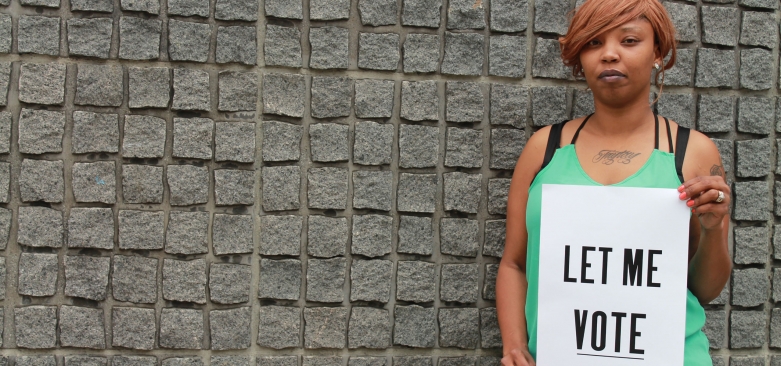Updates
Introduced

Since slavery was abolished, felony disenfranchisement laws, which strip individuals of their vote because of a criminal conviction, have been silencing the political voice of communities of color. Three out of every four men in California prisons are men of color. Felony disenfranchisement laws are a legacy of Jim Crow.
AB 2466 is a step towards ending the shameful legacy of Jim Crow in California. Co-authored by Asm. Shirley Weber and Sen. Holly Mitchell, the bill clarifies voter eligibility and guarantees a more inclusive electorate.
In 1976, the California Constitution was amended to end permanent disenfranchisement and ban only people who are currently “imprisoned or on parole for the conviction of a felony” from voting. The meaning of the terms “imprisoned” and “parole,” however, has been the subject of ongoing confusion and litigation.
In 2012, the ACLU of California, and its partners, sued over the question of voter eligibility following the Criminal Justice Realignment Act of 2011 (CJRA), which created three new categories of sentencing for people convicted of low-level felonies: mandatory supervision, post-release community supervision, and a term in county jail.
We won that case! However, California’s voter eligibility laws cannot be subject to change every time a sentencing reform is enacted.
AB 2466 would amend the Elections Code to codify the recent decision in our legal victory, ensuring that more than 50,000 people under mandatory and post-release community supervision can vote. AB 2466 also clarifies that the third category of CJRA sentencing – a term in county jail – likewise does not strip people of their right to vote.
By voting “yes” on AB 2466, our legislature has the historic opportunity to move towards ending voter suppression and saying no to Jim Crow 2.0 in California.
Introduced